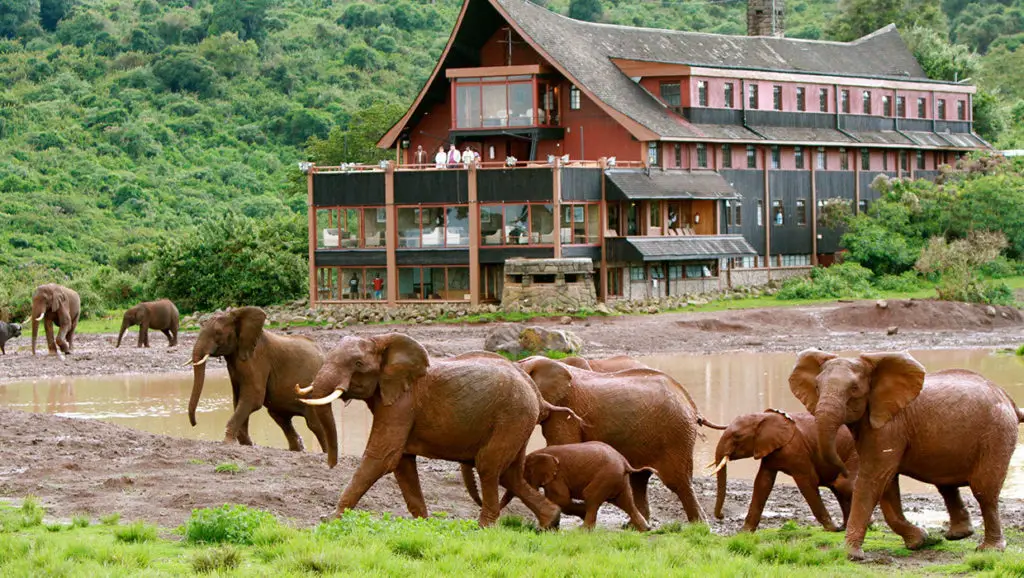The primary economic activity in Bungoma Town, Kenya is agriculture, with a particular focus on sugarcane and maize farming. The region’s economy heavily relies on crop cultivation, livestock rearing, and agro-processing industries.
This article explores the various economic sectors, challenges, and opportunities in Bungoma’s economic landscape.
What are the main agricultural activities in Bungoma?
Agriculture forms the backbone of Bungoma’s economy, with the following key activities:
- Sugarcane farming
- Maize cultivation
- Sunflower production
- Coffee growing
- Tobacco farming
- Potato cultivation
- Bean farming
Sugarcane farming is particularly significant, with over 67,000 farmers directly dependent on the Nzoia Sugar Company Ltd. The region’s high rainfall throughout the year supports diverse agricultural activities, making it a prime area for crop production.
How does livestock rearing contribute to Bungoma’s economy?
Livestock rearing is an essential component of Bungoma’s agricultural sector. Farmers engage in:
- Dairy farming
- Poultry keeping
- Goat and sheep rearing
- Pig farming
These activities provide additional income streams for farmers and contribute to the local food supply. The livestock sector also supports related industries such as leather production and meat processing.
What role does agro-processing play in Bungoma’s economy?
Agro-processing industries form a crucial link between agriculture and manufacturing in Bungoma. Key activities include:
- Sugar milling
- Maize milling
- Sunflower oil extraction
- Coffee processing
- Dairy product manufacturing
These industries add value to raw agricultural products, create employment opportunities, and contribute to the region’s overall economic growth.
What other industries are present in Bungoma?
While agriculture dominates, Bungoma’s economy is diversifying. Other notable industries include:
- Transportation and logistics
- Retail and wholesale trade
- Financial services
- Construction
- Tourism (emerging sector)
These sectors provide essential services to support agricultural activities and cater to the growing urban population in Bungoma Town.
How does Bungoma’s regional context influence its economy?
Bungoma’s strategic location plays a significant role in shaping its economy:
- Border proximity: Bungoma’s location near the Uganda border facilitates cross-border trade.
- Regional hub: The town serves as a economic center for surrounding rural areas.
- Transportation links: Good road connections to major cities enhance trade opportunities.
These factors contribute to Bungoma’s potential as a growing market for various goods and services.
What are the main challenges facing Bungoma’s economy?
Despite its potential, Bungoma’s economy faces several challenges:
- Over-reliance on agriculture
- Limited value addition to agricultural products
- Youth rural-urban migration
- Inadequate infrastructure in some areas
- Climate change impacts on agriculture
Addressing these challenges is crucial for sustainable economic growth in the region.
What opportunities exist for economic growth in Bungoma?
Bungoma offers several opportunities for economic development:
- Agricultural modernization and diversification
- Expansion of agro-processing industries
- Development of the tourism sector
- Investment in renewable energy
- Improvement of transportation and logistics infrastructure
Leveraging these opportunities can help create a more robust and diversified economy in Bungoma.
How does conservation agriculture impact Bungoma’s economy?
Conservation agriculture is gaining importance in Bungoma due to its potential benefits:
- Improved soil health
- Increased crop yields
- Enhanced water retention
- Reduced production costs
- Climate change resilience
Adoption of conservation agriculture practices can lead to more sustainable and profitable farming in the region.
What is the role of youth in Bungoma’s economic future?
Youth play a crucial role in Bungoma’s economic development:
- Agricultural workforce: Many young adults are engaged in crop farming.
- Innovation: Youth can bring new ideas and technologies to traditional sectors.
- Entrepreneurship: Young people are starting businesses in various sectors.
- Skills development: Training programs help youth acquire relevant skills for the job market.
Addressing youth rural-urban migration and creating opportunities for young people is essential for Bungoma’s economic growth.
How does the urban-rural dynamic affect Bungoma’s economy?
Bungoma’s economy is characterized by a strong urban-rural connection:
Urban areas:
- Serve as markets for agricultural products
- Provide services and goods to rural areas
- Host agro-processing industries
Rural areas:
- Supply agricultural products to urban markets
- Provide labor for urban industries
- Benefit from urban-based services
This interdependence shapes the overall economic landscape of Bungoma.
What is the potential for industrial development in Bungoma?
Bungoma has significant potential for industrial development:
- Agro-processing expansion
- Light manufacturing
- Construction materials production
- Textile and apparel manufacturing
- Renewable energy production
Investing in these sectors can create jobs, increase value addition, and diversify the local economy.
How does the financial services sector support Bungoma’s economy?
The financial services sector plays a vital role in Bungoma’s economic development:
- Providing credit to farmers and small businesses
- Facilitating savings and investments
- Supporting agribusiness through specialized financial products
- Enabling mobile money transactions for rural areas
- Offering insurance services to mitigate agricultural risks
Expansion of financial services can further support economic growth in the region.
What is the impact of transportation on Bungoma’s economy?
Transportation is crucial for Bungoma’s economic activities:
- Facilitates movement of agricultural products to markets
- Enables cross-border trade with Uganda
- Supports the growth of logistics and distribution businesses
- Improves access to education and healthcare services
- Enhances tourism potential
Continued investment in transportation infrastructure can unlock further economic opportunities.
How does Bungoma compare to other agricultural regions in Kenya?
| Factor | Bungoma | Other Agricultural Regions |
|---|---|---|
| Main crops | Sugarcane, maize | Tea, coffee, horticulture |
| Rainfall | High year-round | Varies by region |
| Agro-processing | Developing | More established in some areas |
| Market access | Good (Uganda border) | Varies by location |
| Diversification | Emerging | More diversified in some regions |
While Bungoma shares similarities with other agricultural regions in Kenya, its unique geographical location and crop focus set it apart.
What role does education play in Bungoma’s economic development?
Education is essential for Bungoma’s economic growth:
- Skills development for agricultural modernization
- Training for emerging industries
- Entrepreneurship education
- Research and innovation in agriculture
- Adult education programs for farmers
Investing in education and vocational training can enhance the workforce’s capabilities and drive economic development.
How can Bungoma achieve sustainable economic growth?
To achieve sustainable economic growth, Bungoma should focus on:
- Diversifying the economy beyond agriculture
- Investing in value addition and agro-processing
- Improving infrastructure, especially in rural areas
- Promoting conservation agriculture and sustainable practices
- Developing human capital through education and skills training
- Encouraging youth participation in agriculture and entrepreneurship
- Attracting investments in emerging sectors like tourism and renewable energy
- Strengthening financial services to support business growth
- Enhancing cross-border trade opportunities
- Implementing climate-resilient agricultural practices
By addressing these areas, Bungoma can build a more resilient and prosperous economy for its residents.
In conclusion, Bungoma’s economy is deeply rooted in agriculture but shows potential for diversification and growth. By leveraging its strengths in agriculture, addressing challenges, and embracing new opportunities, Bungoma can develop a more robust and sustainable economic future.



